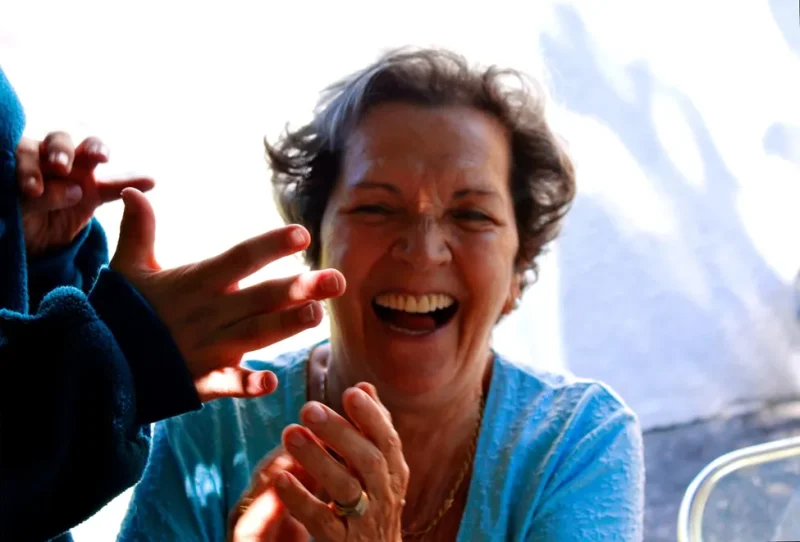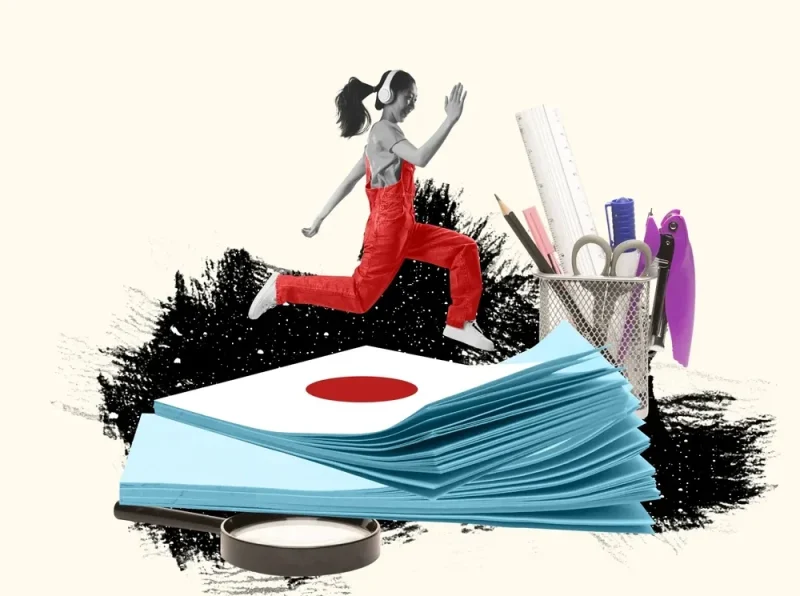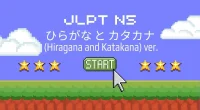Japanese Dajare: wordplay! Introducing dajare and dad jokes that everyone can enjoy

In Japan, there is a unique play on words called "Dajare" (readings are expressed in katakana). This is a joke that makes use of the sound of words, and can be considered a part of Japanese culture. For foreigners interested in Japanese culture, puns are an interesting and challenging topic to learn. Furthermore, understanding puns helps to deepen one's understanding of Japanese readings, meanings, and homonyms.
In this article, we will introduce Japanese puns (Dajare) in detail. We have also compiled a list of the characteristics of Japanese puns, foreign puns, and even tips on how to make puns. Why don't you make your conversation with Japanese people more enjoyable by learning about Japanese puns?
And enjoying puns is only the first step in exploring the wide variety of expressions in the Japanese language. If you are interested in an even wider range of word play, including slang, check out the following articles!
▶︎ I want foreigners to know! Fun Usage of Japanese Slang
▼Goandup Picks Click here for recommended articles!
- Required before studying abroad! Goandup Nihongo+, an online Japanese language learning service
- This page introduces services for foreigners who wish to study in Japan or improve their Japanese language skills to learn Japanese online.
- Goandup Salon" community for foreigners living in Japan
- We introduce an online community where foreigners living in Japan can exchange information and interact with each other to support their life in Japan.
- Goandup Study" supports foreigners who want to study in Japan.
- This section introduces study abroad support services that provide comprehensive support to foreigners who wish to study in Japan, from preparation for study abroad to living in Japan.
- Where can I buy a prepaid SIM in Japan? Recommended SIM cards for foreigners are also introduced.
- How to purchase a prepaid SIM and suitable SIM cards for foreigners.
- The Complete Guide to Pocket Wi-Fi in Japan for Foreigners!
- We introduce how to select and recommend pocket Wi-Fi products that can be used conveniently in Japan.
- The Complete Guide to Finding a Job in Japan! Finding a job, changing jobs, and part-time work for foreigners
- This site provides foreigners who want to work in Japan with comprehensive information on how to find a job, recommended job sites, and other information necessary to find a job.
What is Japanese Dajare?

First, let me explain about Japanese puns.
The beginning of Dajare and its usage
Japanese dajare are word games that create unexpected fun by putting words that sound the same or are similar. It was most popular during the Edo period (1603-1867) and is deeply rooted in the cultural background. Those with a sense of style are called "share," while those without a sense of style are called "dashare.
The appeal of dajare is that they are easy to come up with and enjoy by anyone, regardless of age, whether children or adults. By incorporating puns into everyday conversation, you can help to lighten the mood of a staid atmosphere.
It is also easier to understand dajare if you learn "homonyms" that have the same pronunciation but different meanings, such as "sentō" and "sentō," or "more than (ijō)" and "abnormal (ijō).
Is Japanese Dajare an old man's gag?
In Japan, dajare are often referred to as "Oyaji gag" ("Oyaji" refers to a middle-aged man, often a father, and "gyagu" means a gag or joke). These are generally the favorite puns of middle-aged and older men, and they range from the funny to the completely unfunny.
For example, "Toilet ni itte iru ire" and "Dokan ga dokkan" are typical examples. If you say a pun that is not funny, you may be told that it is an old man's gag or that it is cold, but in the spirit of puns, it is worth being proactive about using them.
- Go to the bathroom.
- Romaji: "Toire ni ittoire"
- DESCRIPTION: This gag is a funny take on the common expression "Toire ni itte oide" (Go to the toilet and come) by superimposing the word "toilet" (Toire)." The word "ittoire" is a shortening of "go itte oide," and because it sounds similar to "Toire" (toilet), it works as a play on words.
- A clay pipe goes boom!
- Romaji: "Dokan ga dokkaan"
- Description: This gag is based on sound imitation and word play. The word "dokan" (earthen pipe) is combined with the onomatopoeic word "dokkaan" (dokkaan), which is used to describe a loud sound, to create a funny image of an earthen pipe exploding with a loud noise. The key point here is the use of the similarity in sound between "Dokan" and "dokkaan.
Are there Dajare in other countries?

In other countries, cultures that enjoy word play also exist, especially in English-speaking countries, where "pun" and "dad joke" are the equivalent of Japanese puns and father jokes, respectively. They are widely enjoyed as part of humorous conversation, and are characterized by jokes that make use of the sound of words. Jokes that are not very funny are sometimes called "dad jokes.
Japanese dajare ≒ "pun" in English-speaking countries
The English word "pun" is a play on words that takes advantage of the similarity in the sound of words and their double meanings, and, like Japanese dajare, brings surprise and laughter to the listener.
For example, in "What do you call a Mexican who has lost his car? Carlos!", "Carlos" is played to sound like "Car-less" (without a car).
Thus, pun creates humor by repeating words with the same sound or vowel.
[Example]
This record costs $900. How expensive it must be a record.
Here "record" is used in a double sense (as a musical record and as a record of a high price). This play on words creates humor.
Because they have only one tale.
It uses the homonyms "tale" and "tail." It is a cross between "tale" and "tail."
Japanese Oyaji Gag≒"Dad Joke" in English-speaking countries
Dad Jokes, with their simplicity and predictable, punchy lines that are sometimes perceived as unfunny, are much like Japanese Oyaji gags. These jokes are often used, especially in the home, when parents speak to their children or other family members, and are a familiar form of humor that everyone can easily understand.
For example, in "What do you get when you cross a snowman and a vampire? Frostbite.", "Frostbite" (frostbite) is used as a Frostbite" is used as a cross between a snowman (symbolizing cold) and a vampire (symbolizing biting).
[Example]
I used to play piano by ear, but now I use my hands.
In this joke, the hilarity that results from a literal interpretation of "by ear" (by ear) is hilarious.
Why can't you give Elsa a balloon?
The double meaning here is humorous, using "let it go" as both the title of a song by Elsa (a character from "Anna and the Snow Queen") and the literal act of "letting go of the balloon".
Dad Jokes are known for their simplicity and are sometimes perceived as "cold," but they are loved by many for the aspect of their lightheartedness that creates fun interactions among family members. It can be said that Japanese "Oyaji Gag" and "Dad Joke" are perceived in a similar way to Japanese puns.
Introduces interesting Japanese dajare!

Here are some interesting Japanese dajare with explanations.
Takara ga atta kara
The reading of "treasure" is "takara" (takara). Here, the phrase "because it was there" (atta kara) is crossed with "takara" (Takara).
Nashi wa nashi
The word "nashi" (pear) and "nashi" (nothing) are read the same way: "nothing" (nashi). This pun is a cross between the meaning "there is a pear" and the meaning "there is nothing (nashi).
Saba wo sabaku
Saba" is read as "mackerel" (saba). Saba wo sabaku" literally means "to cook saba (mackerel)," but it is a play on words, combining the name of the fish and the action.
How many ninja are there? (Ninja wa nannin ja?)
The word "Ninja" is read as "Ninja" (Ninja). This pun is a cross between asking "How many ninjas are there? and the word "Ninja". It is a play on words that takes advantage of the similarity in the sound of the words.
Masu o tsurimasu
The reading of "trout" is "masu" (Masu). Here, the act of fishing for trout (trout) and "masu" (masu) are repeated. This is a play on words that combines the name of the fish and its activity.
I'm glad I bought this cutter (Kono kattaa katte yokatta-)
The reading of the word "cutter" is "Kattaa" (Kattaa). The phrase "I'm glad I bought this cutter" means "I'm glad I bought this cutter." It is a play on words because cutter (kattaa) and bought (katte) sound similar.
Ika wa ikan! (Ika wa ikan!)
Ika" is read as "ika" (ika). Ika" means "no good" or "no good," but here we are playing on words with "ika" to say "ikan" (ika). It is a double meaning of "ika (ika) is no good (ikan).
Iruka wa iru ka? (Iruka wa iru ka?)
Iruka" is the Japanese word for "dolphin" (Iruka). The word "Iruka" is a cross between asking, "Are you there?" and "Iruka. and the word "dolphin" (Iruka). This is also a play on words using the similar sound.
Denwa ni denwa
The reading of "telephone" is "denwa" (でんわ). It means "call to the phone," but here the word "phone (denwa)" is repeated. It is a play on words using the same word.
Tokoya wa doko ya? (Tokoya wa doko ya?)
Tokoya" is the Japanese word for "barbershop. The word "Tokoya" is a cross between "Tokoya" and "Doko ya? and the word "Tokoya" (Tokoya). It is a play on words because of its similarity in sound to an expression asking about a place.
Maigo no maiko
The word "maigo" is read as "maigo" and "maiko" as "maiko. This is a play on words that makes use of the similarity in sound between "maigo" and "maiko.
Coordinate wa kou de nee to! (Coordinate wa kou de nee to!)
The word "coordinate" is read as "ko de neito" (coordinate). This pun is a cross between the phrase "ko de nedo" (must be combined correctly) and "coordinate". It is a play on words regarding clothing combinations.
Tips on how to make a Dajare

Here are some tips on how to make a dajare. Keep the points in mind and try to make funny puns like a game!
Using the same word twice with the same reading but different meanings
Words that read the same but have different meanings, such as "rain" and "ame" (Ame), or "position" and "Ichi" (Ichi), are used.
[Example]
Niji no niji
The word "niji" can mean both "rainbow" and "two o'clock. The "rainbow at two o'clock" is a cross between time and a rainbow.
Ikura wa ikura? (Ikura wa ikura?)
The word "how much" can mean both "salmon roe" and "how much?" both mean "salmon roe" and "how much? This is a pun, asking the price of salmon roe.
Kono kanji wa ii kanji
The word "kanzi" can mean both "kanji" and "feeling." This phrase is a cross between Kanji and a good sense of feeling.
Use words that read similarly twice.
Words with similar readings, such as "Mikan" and "Arummikan," "Asari" and "Assari," are repeated.
[Example]
Assari shita asari
The words "asari" and "asari" have the same reading. The phrase means that the taste of asari is light.
Sukii ga suki
The words "ski" and "like" have the same reading. This expresses the fact that we like to ski.
Hageta hito o hagemashita (Encouraged the bald man)
The words "bald" and "encourage" have the same reading. The phrase means to cheer up a bald person.
Combining Japanese and English
Combine Japanese and English words such as "hat" and "hat," "corn" and "corn," etc.
[Example]
Boushi ga tobasa rete hatto shita
Combining the word "hat" with the English word "hat," it expresses the surprise when the hat is blown off.
Toumorokoshi ga coon ni takusan! (Toumorokoshi ga coon ni takusan!)
The word "corn" is combined with the English word "corn" to express a lot of corn (corn) in a fun way.
Kitchen wo kichinto souji suru (Kitchen wo kichinto souji suru)
Multiplying "kitchen" by "properly" is a play on words for the everyday act of properly cleaning the kitchen.
use a dialect
Use dialects such as "~ja" and "~ken" to create dajare with a rich regional flavor.
[Example]
Monja wa kou yatte taberu monja
The word "monja" is multiplied by the dialectal expression "monja" (meaning "it's a thing") to express the suggestion that monjayaki should be eaten in this way in a fun way.
Kimi no iken niwa tsuite iken
The word "tsudoiiken" is multiplied by the dialectal negative expression "tsudoiiken" (not agreeing, not understanding) to express the position that I do not agree with your opinion.
Adapting to the level of the other party
Choose words that the other party can understand and use dajare. If you use jargon, it may be difficult for them to understand you.
Enjoy learning Japanese using Dajare!
Memorizing letters and vocabulary is an essential part of learning Japanese, but sometimes the process can seem difficult and tedious. However,"Dajare de oboeru Kanji to Kotoba (Kanji and Words Learned Through Puns)"makes learning Japanese even more fun. In this book, you can learn the meanings of kanji and words through dajare, and by learning interesting puns, kanji and words will naturally stay in your mind.
Using dajare is a fresh and effective approach for learners, as it allows them to learn Japanese in an interesting way, rather than just memorizing kanji. Even if you are not good at learning kanji, this book will help you rediscover the charm of the Japanese language and motivate you to learn more.
To all foreigners studying Japanese, please pick up a copy of "Dajare de oboeru Kanji to Kotoba (Kanji and Words Learned Through Puns)". It will make learning more fun and more effective.
Two books we especially recommend are here▼.
・Dajare de oboeru Kanji to Kotoba - 2nd Grade Elementary School
・Dajare de oboeru Kanji to Kotoba - Elementary School 5th Grade
For those of you who want to further your studies at a Japanese language school

The Japanese language attracts attention from around the world for its rich expressiveness and profound culture. From movies, music, and literature to everyday conversation, learning Japanese is not only a way to acquire a new language, but also a gateway to a deeper cultural understanding and a broader perspective.
For those of you who want to study Japanese more seriously, enter higher education in Japan, or find a job in Japan, taking your Japanese language skills to the next level is the first step in turning your dreams into reality. There are approximately 700 Japanese language schools in Japan with various characteristics, but it is not easy to select the best school for you.
Therefore, we will do our best to help you choose the perfect Japanese language school to realize your goals and dreams! If you have any questions or concerns about Japanese language schools, please feel free to contact us using the inquiry form below.
We will provide you with the best support to meet your Japanese language learning goals. We hope that our support will make your Japanese language study more fulfilling and fruitful.
summary
In this issue, we have introduced Japanese dajare, classic wordplay that can be enjoyed by all generations. Using Japanese dajare can make your conversations with Japanese people more cheerful and enjoyable. To do so, it is important to learn how to read Japanese and its meanings.
We hope you will make use of these tips to create your own original puns.






